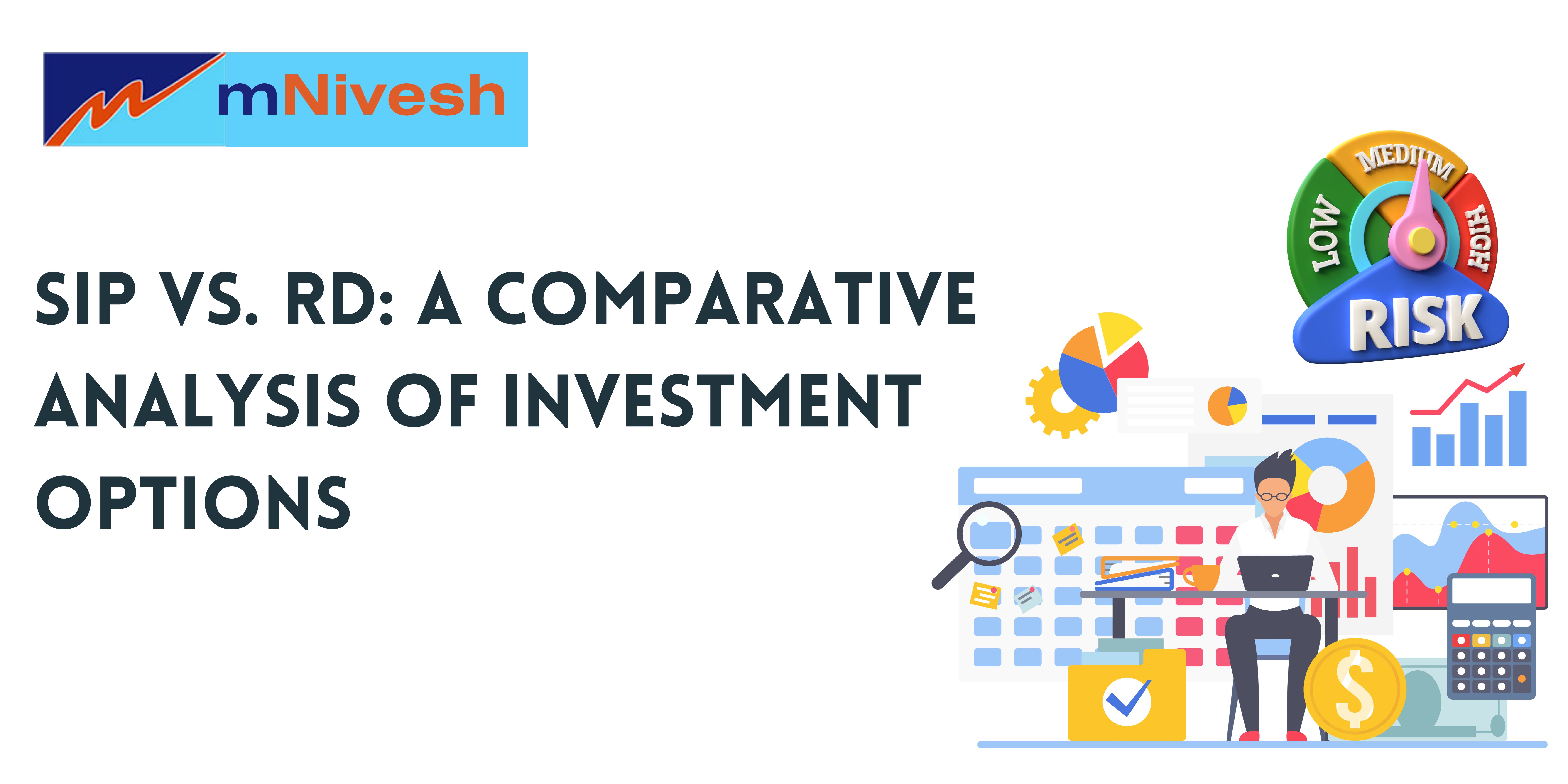SIP vs. RD: Making the Right Investment Choice
SIP vs. RD: Making the Right Investment Choice
If you are a new investor and are looking for investment options, you might have researched mutual funds and SIP, investigated the risks and perks, and wish you could have another option where you were immune from market risks and stay assured that the money you are saving constantly will return to you on completion of the fixed tenure.
If you stroll down the lane of financial investments, you will discover an option: the RD or Recurring Deposit. This RD is a term deposit plan where you deposit a fixed amount of money periodically, as specified by you, just as in a SIP. But instead of your money getting invested in a mutual fund, it gets deposited in your bank, and you will get sure returns with interest.
Now you might think that if there is a convenient and non-risky option, why do people even invest their money in risky things like mutual funds? Well, both these investment schemes have their perks and limitations. We will discuss both RD and SIP, and by the end of this article, you will be able to determine what is best for you based on the information you will get from here and your financial condition and goals.
Systematic Investment Plan (SIP)
A Systematic Investment Plan is an investment strategy commonly related to mutual funds. It includes contributing a fixed sum of cash at regular intervals in a mutual fund plot. SIPs are planned to tackle the power of compounding and enable investors to take an interest in the equity markets systematically. They offer adaptability, convenience, and the potential for higher returns compared to RDs.
Recurring Deposit (RD)
A Recurring Deposit is a financial item banks offer that permits people to spend a fixed sum of money regularly. It usually has a fixed tenure and provides a predetermined interest rate. RDs are known for their simplicity and low risk, making them an appealing choice for traditionalist investors. They offer ensured returns and are considered perfect for people with standard pay who favor disciplined savings. It is always a safe and hassle-free option for first-time investors who want to avoid risking all their savings in the first innings of their investment game.
Comparing SIP and RD
Let's put SIP and RD one on one and see what they got in terms of different concerns:
- Investment Pattern and Tenure: You do not have to start big in any of the two financial products; you can begin these investments as soon as you earn. In SIPs, you can fix and change your investment sum and frequency as often as you want, but in RD, you decide on a sum of money to be deducted every month, which remains the same until the fixed tenure is completed.
- Interest Rates: Regarding interest rates, SIP has the upper hand on RD; the interest rates on your RD will be around 7 to 8%. Usually, SIPs have been providing interest rates as high as 20 to 22%; even if it's low, it will be around 10 to 12%, much higher than RD's. Here it has to be clear that compounding applies to both RD and SIP.
- Risks and Safety: Here RD seems superior. In the case of RD, you stay assured of a sum of money that has been fixed, coming to you in return, but in SIPs, there is no such guarantee. You are expecting high returns, and you might lose it all if the market crashes. To sum it up, RDs are safer than SIPs.
- Frequency of Instalment: In an RD, you set tenure and a contribution amount to be taken out of your monthly bank account. Whereas in most of the SIPs, you have the power to adjust the instalment amount and frequency; you can do it monthly, fortnightly, weekly or even daily.
- Taxation: SIPs are mainly exempted from taxes when they are part of long-term equity mutual funds, up to 1 lack, while interest charged on RDs is the same as your income tax.
- Wealth Creation Potential: By going through the above pointers, it is clear that despite the risks involved in SIPs, these have more excellent wealth creation potential than RD.
Key Takeaways
- Both SIP and RD implant disciplined saving habits in individuals.
- No large sum of money is required to start investing in either of the plans.
- SIPs are part of mutual fund investment and hence are prone to market risks.
- RDs assure investors of fixed returns.
- Most types of SIPs are tax-exempted, while RD comes under the circle of your regular income tax slot.

 Continue with Google
Continue with Google
 Continue with Yahoo
Continue with Yahoo
